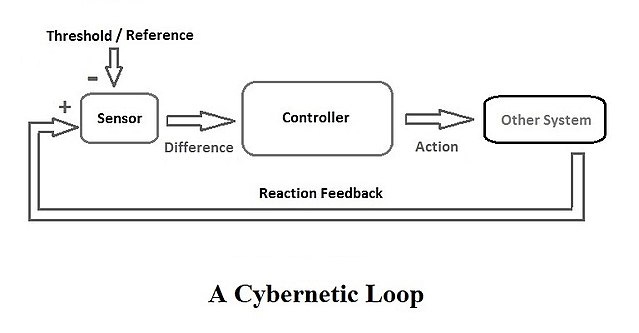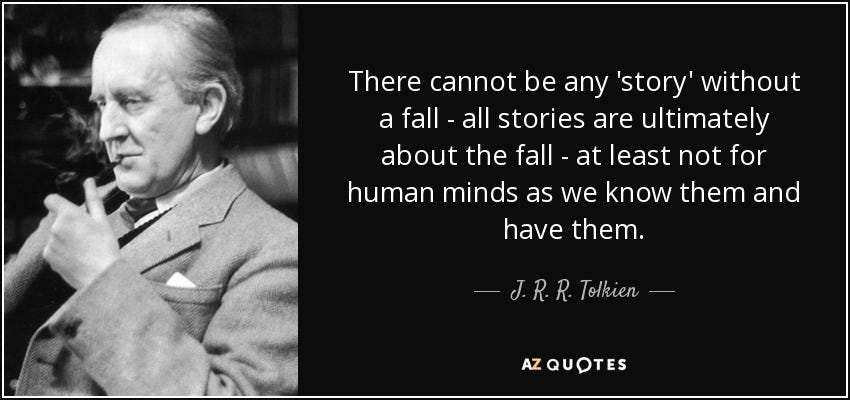Cybernetic Theodicy, Opponent-Process Theory, and the Consolation of Philosophy
I am not a theologian and these are just my opinions

I am not a theologian, and these are just my opinions, but since I’m sure independent thought should be allowed I’m going to post it anyway. In fact, my real issue was whether or not my arguments would even be understood or I should write a story. While you do need a story, one of my inspirations is literally Boethius, which made me think it’s very possible you can have an explicit argument as long as you have a proper context and way of presenting it. I’ll write more implicit versions later.
No. Like God is the same as the concept of goodness itself so everything good is what God is. I think that solves a lot of things even if Boethius didn’t directly mention it. For example, the Euthyphro dilemma (even though Socrates was speaking about Greek gods and this might just be a fictitious narrative by Plato in the first place:) "Is the pious (τὸ ὅσιον) loved by the gods because it is pious, or is it pious because it is loved by the gods?" If you just say God is the same as the Good then there’s no dilemma, God can’t command anything evil because God’s nature is the same as goodness but God isn’t answering to an outside concept either because goodness is just what God is.
However, God isn’t just an idea or a force because of the ontological argument, being a person is better than being an inanimate object and that’s why we want to be alive and conscious (preferably eternally i.e. eternal life) so God is a person. Both of these arguments are mine, not official arguments of the Orthodox, Catholics, or any other denomination of Christianity, but I’m sure there are similar arguments out there.
In my view, the problem with the Euthyphro dilemma is they’re assuming good and evil are outside of God to begin with, while Boethius in his book The Consolation of Philosophy argues that God is the Good, so Beauty, Truth, Kindness, etc. are all what God is. This is very similar to Plato’s arguments as well, which I’m sure is why many people consider Plato the first Christian (on that note, no, Plato didn’t demand for people to believe a lie, the proper term is “great myth,” really a story that explains everything like a metanarrative that’s also a first-order narrative leading to infinite possibility for recursion.)
Whatever God commands is good because God is good and that’s it. There isn’t some entity of goodness separate from God, so the idea that God is either commanding some goodness outside of God or that God has external limits is just incoherent. It’s like asking what’s north of the North Pole. However, God’s ways will always be understandable eventually since God is good and being understandable is good. It might not be understandable immediately but God isn’t just going to allow all sorts of rape, murder, genocide, etc. and let the bad guys win because that’d be evil. That gets back to the idea of stories as being the Urphänomen (which seems like more or less what Plato was going for when he literally used the word genos as a noun, like genetic or genus, not “noble” in some stereotypical medievalist chivalry way just because it’s Ancient Greece. He also interestingly didn’t even use a noun with it, just an adjectival noun, which is why some people filled in “lie” or more softly “myth” to begin with. The Urding is implicitly the Urgeschichte phenomenologically for Plato.) Jesus rose from the dead, Job got twice what he lost, Jonah emerged from the belly of the whale. God isn’t just going to let good people be tortured and bad people get away with it, but the faith clearly has to come first.
So, in light of stories, why does God allow evil? There would be nothing at all without change, especially in light of stories but also in general. This also means there must be a change in moral qualities, which is like what Tolkien said, every story is about a fall. In the beginning God said “let there be light” and there was light. The nature of light is to propagate because it’s a wave, light can’t be still. That also leads to the opponent-process theory, since people only see change, rather than seeing static objects in the way people tend to think they do. If there is no change, you see (hear, etc.) nothing at all, which is called the Ganzfeld effect (because we didn’t have enough German for today,) which is why every track on my first binaural beat album Hypnogogy has a Ganzfeld version with pink noise in addition to the noise-free version that’s supposed to let you hear things. Not only that, people forced to stare into each others’ eyes for a long amount of time began to hallucinate. This is also a common problem (or sometimes desired state) for people just meditating. Clearing your perception isn’t a matter of going somewhere where there’s “nothing,” after all, if there were a completely constant stimulus you would not be able to perceive it with your senses (sound like anything?) but of focusing your attention. This is also where I disagree with how Eastern meditations in general are done, because for all the talk of flowing water, they like to just force their mind clear. Meditation is not originally just an Eastern religious idea, meditation means the same kind of thing as contemplation. It’s not even necessarily a spiritual idea, but since you’re supposed to love God with all your mind I like to meditate on God often.
I think the ideal way to meditate is to treat it like a cybernetic feedback loop. You’re not trying to switch your mind off, that’s basically like what I said about black magic being like black boxes and people often liking that because they feel like the mind is somehow overcoming itself when it isn’t in that case, but you want to make it clear so you can see through it basically. It’s like a one-way mirror or a room with a lot of noise: just switch off what’s on your side and you can see through because the noise isn’t blocking it out. The way that works out with the mind and the brain is like a cybernetic feedback loop, because you aren’t going like “switch off” and forcing it empty, that itself also involves noise the same way noise-canceling headphones involve negative sound interference to cancel out the sound and are also making noise. You’re just observing, watching, and adjusting gradually yet quickly as you get better and better at seeing through it. I am a 100% organic cyborg or at least I’m trying to get there.
The fact is even if Adam and Eve stayed in the Garden of Eden forever, they would be conscious of nothing because they wouldn’t perceive change, only other people would perceive them walking around eating figs and whatever forever but that wouldn’t make them conscious. You can’t have time without things changing and the only kind of perception you can have without time is basically just cognition anyway. Eternal literally means unchanging or as some people like to translate it outside time, but it just means something that doesn’t change. I think that’s also supposed to be why humans were made in the image of God, because it’s possible to understand things that don’t change even though everything in the environment does. The maximum good for beings with rational minds means being able to perceive things that don’t exist in the world, like the chimerical colors, which requires the opponent-process theory. I’ve definitely used opponent process to refer to Satan before off and on. But the thing is there’s very clearly things you want and things you don’t want with opponent processes. You need to stare at the picture to get the colors that can’t exist, and then they only look good because of the contrast to what’s around them. Good is like the impossible colors and evil is like the regular colors. Evil goes like “look at me, I’m the most colory color in creation” (kind of like Lucifer before his fall) but when good comes into contact with it it makes it look dull and boring by the inevitable nature of the interaction between the two and the fact good has a different kind of nature, evil in my opinion is entropy which is death while good is negentropy which is life.
Why is the first thing that was created light, which is a wave and moves, and why does everything else seem to share the properties of that Urphänom? Probably this, but that’s another story:
Since these are just my opinions, feel free to add contradictions and possible corrections in the comments below!





